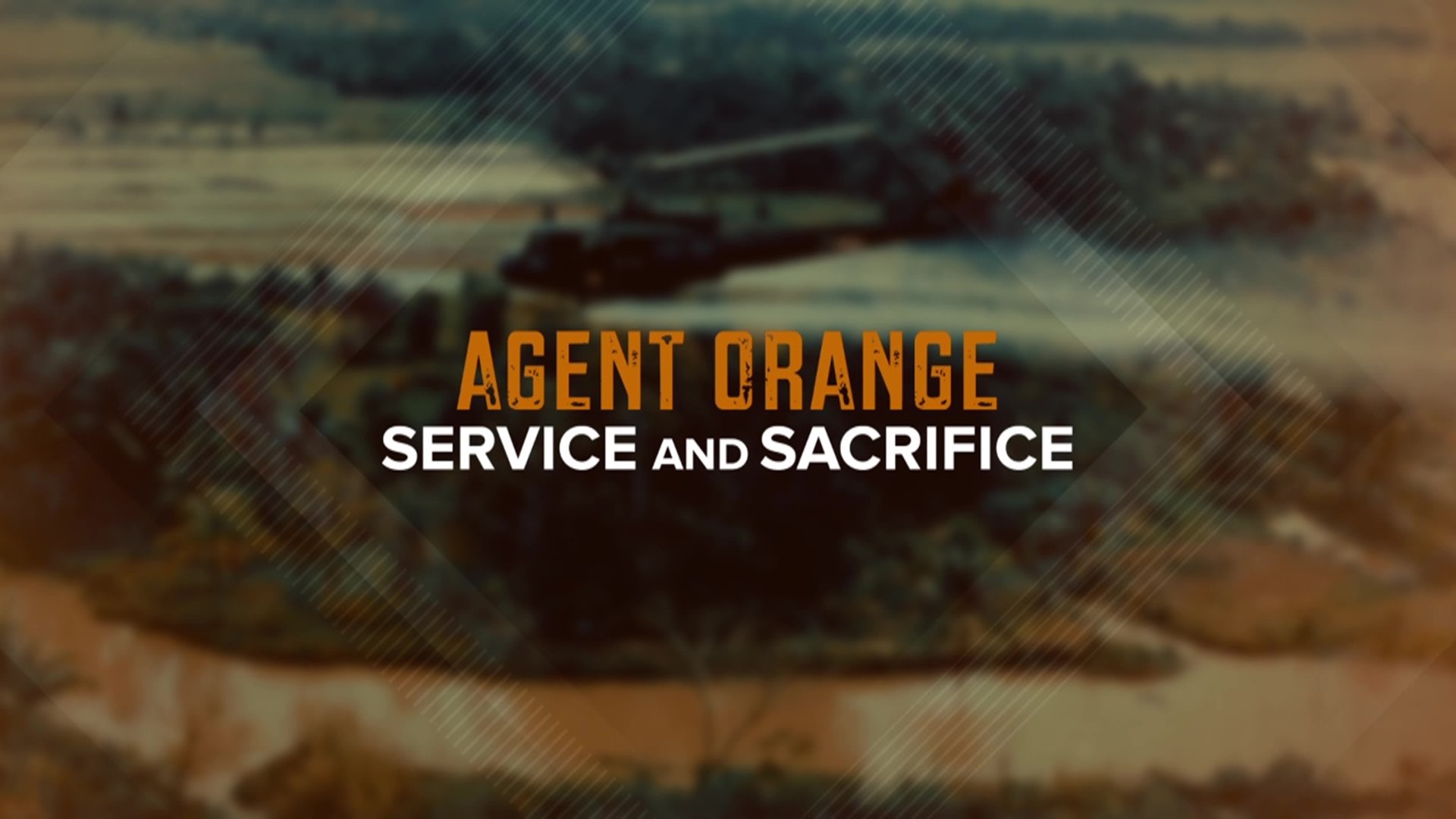Agent Orange: Service and Sacrifice
Tens of thousands of Vietnam veterans here in Pennsylvania are continuing to fight a war within their own bodies.

Last month, Newswatch 16 introduced you to two women from Schuylkill County on a mission to honor their late husbands, who died decades after their service in Vietnam. The men suffered from illnesses related to their exposure to Agent Orange.
Newswatch 16 is now getting an idea of just how many Pennsylvania veterans are impacted by Agent Orange. It affects so many veterans that we found one, Bob Bodish of Pine Grove, living right next door to one of the widows we interviewed.
There was a time when Bodish wasn't proud of his service. But now, in his home in Pine Grove, there's a whole room dedicated to his Air Force career during the Vietnam War.
Bodish often worked on the planes that sprayed a chemical called Agent Orange across the Vietnamese countryside, C-123s.
"It was called the Operation Ranch Hand. You could see the three airplanes, and when the airplanes would come in, we had to crawl all over those things full of that stuff! Sure, I remember very much," Bodish said.
Bodish first learned that his exposure to Agent Orange could cause health problems in the 1990s when the federal government started to acknowledge the harm Operation Ranch Hand had on the Vietnamese and on our own veterans.
Bodish has since developed diabetes and a nerve disorder called neuropathy.
"I figured the government would take care of us. They wouldn't spray anything that's going to kill us! And they did. They killed a lot of natives, the people who lived there. I'll tell you, it was terrible," he added.
Air and sea
While Bob Bodish served from the air, Bob Morgan of Montour County served at sea. He enlisted in the Navy after receiving a low draft number.
"And I did not want to be a foot soldier in Vietnam, so that's the reason I joined the Navy. Little did I know that there was going to be other issues," Morgan said.
At just 18 years old, Morgan spent 13 months aboard the USS Caddo Parish off the coast of Vietnam. Agent Orange and Operation Ranch Hand were words he never heard back then.
"I was down in the engine room, and it's so stinkin' hot in Vietnam, and you have to stand under the vent that brings in the outside air. Well, guess what's in the outside air?" he said.
Morgan also has diabetes, mobility issues, early signs of dementia, and now a battle with prostate cancer.
"It's always there; I ask myself why, and nobody can tell me why," Morgan added.
The scope of the problem
These men are not alone.
Newswatch 16 submitted a Freedom of Information Act request with US Veterans Affairs to find out how many veterans here in Pennsylvania are still fighting because of the Vietnam War.
VA records show that 27,336 Pennsylvania veterans are currently receiving compensation from the VA related to their exposure to Agent Orange.
The veterans we spoke to say they've received excellent care from the VA that is fully paid for by the government. What they can't get back is time.
Medical benefits were expanded to more veterans last year with the passage of the PACT Act. The VA tells us more than 2,500 Pennsylvania veterans have received Agent Orange benefits since the PACT Act was passed.
But, officials with the Pennsylvania Department of Military and Veterans Services at Fort Indiantown Gap estimate that the PACT Act has been underutilized by Vietnam veterans.
Earlier this year, Newswatch 16 spoke with Brian Natali, the department's division of veterans' services and programs, about the challenge he faces getting Vietnam vets enrolled.
"It's a unique generation. They were not treated very well when they came home, so they do not have trust in any level of government," Natali said.
Veterans look to the future
Bob Morgan just received more money for in-home care when the time comes. He and his wife built their new home near Danville for the future because Bob will eventually move from a cane to a walker to a wheelchair.
"It's probably been time for quite a while. I resist that thought of being, not to offend anyone, but being handicapped," he said.
Both men said the best way to honor their sacrifice isn't with a memorial, it's to make sure that what has happened to them doesn't happen to another veteran.
"I am a proud vet. Would I want to do it over again? I'd have to think about that. I feel sorry for the young kids that got killed," Bodish said.
"It sometimes brings tears to my eyes when someone will come up to me and say 'welcome home.' I have to fight it," Morgan added.
Bodish and Morgan are among the 27,336 veterans currently receiving compensation from the government. But that number doesn't show the entire picture.
We do not know how many veterans have died from illnesses related to their service in Vietnam or how many have never sought compensation.
If you think you have been affected by Agent Orange, you can find more information about the PACT Act here.

